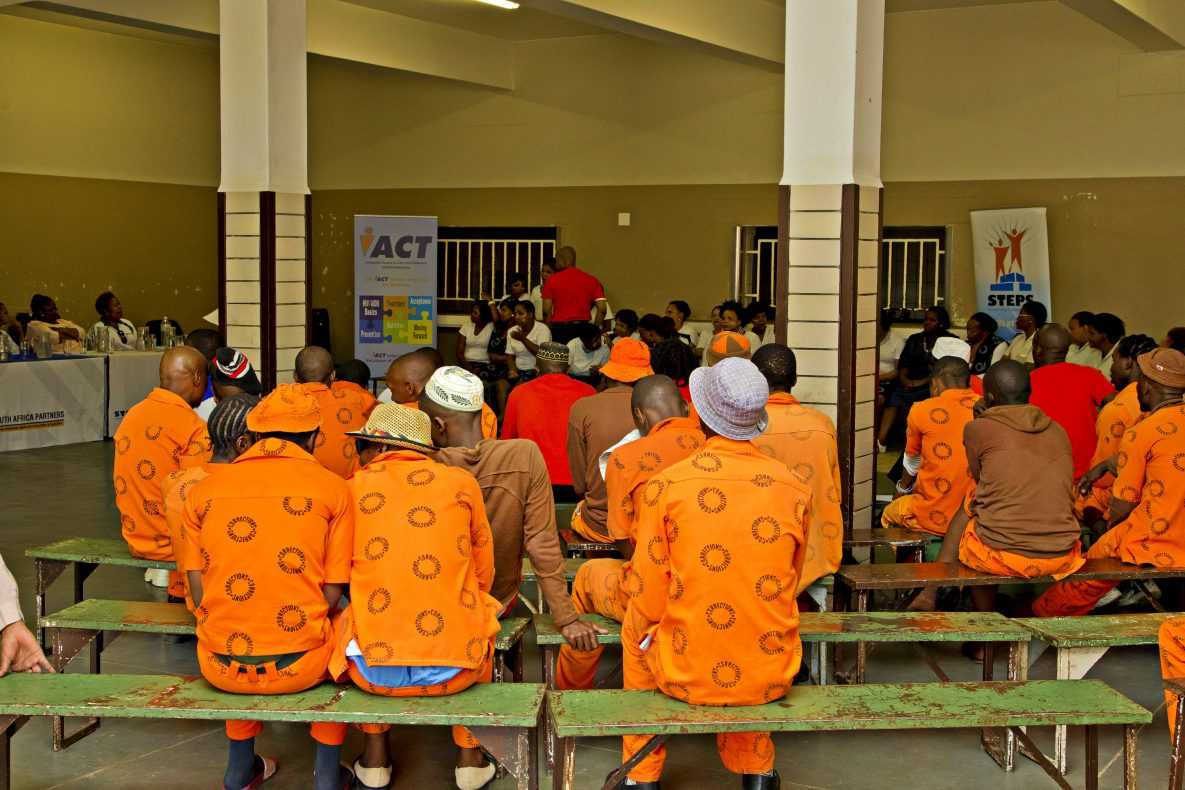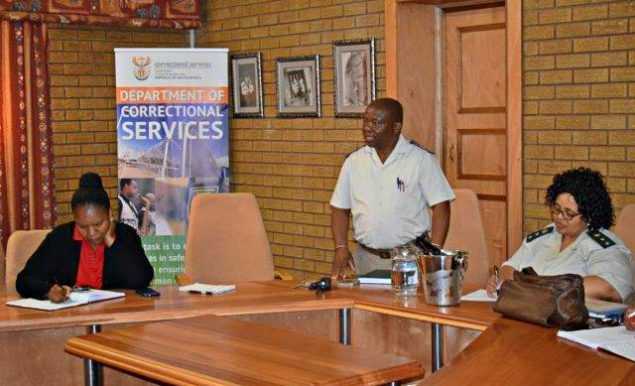Peer educators stepping up HIV prevention and treatment adherence in prisons

Peer educators have become the go to people for inmates who are living with HIV
HIV in South Africa’s prisons remains a major public health concern. As in many prisons around the world, inmates in this country are at a higher risk of HIV infection due to high-risk sexual behavior, injecting drug use, tattooing, and sharing blades for shaving and hair cutting.
The Department of Correctional Services (DCS) has tried to reduce the risk of HIV infection in prisons by providing HIV prevention, testing and support services. However, these efforts often fell short due to limited technical support and a lack of staff adequately trained to respond to the sexual health rights of inmates.
Recognizing the service delivery gap in prisons, the Aurum Health Institute (Aurum) moved to strengthen the capacity of DCS health personnel in 2014 with funding from the Centers for Disease Control and Prevention (CDC) through the US President’s Emergency Plan for AIDS Relief. The funding enabled Aurum to collaborate with South Africa Partners (SA Partners), an organization that piloted an effective peer-based prevention program, Strengthening Prevention Services (STEPS), in male correctional facilities in the Eastern Cape Province since 2011.

HIV in South Africa’s prisons remains a major public health concern. As in many prisons around the world, inmates in this country are at a higher risk of HIV infection due to high-risk sexual behavior, injecting drug use, tattooing, and sharing blades for shaving and hair cutting.
The Department of Correctional Services (DCS) has tried to reduce the risk of HIV infection in prisons by providing HIV prevention, testing and support services. However, these efforts often fell short due to limited technical support and a lack of staff adequately trained to respond to the sexual health rights of inmates.
Recognizing the service delivery gap in prisons, the Aurum Health Institute (Aurum) moved to strengthen the capacity of DCS health personnel in 2014 with funding from the Centers for Disease Control and Prevention (CDC) through the US President’s Emergency Plan for AIDS Relief. The funding enabled Aurum to collaborate with South Africa Partners (SA Partners), an organization that piloted an effective peer-based prevention program, Strengthening Prevention Services (STEPS), in male correctional facilities in the Eastern Cape Province since 2011.
Working together to ensure to stop the spread of HIV and TB
Sexual activity, including consensual MSM, sexual exploitation, and rape is common in prisons worldwide. There’s limited information about sexual activity in South Africa’s correctional facilities, but estimates show that four to 10 percent of offenders engage in consensual same-sex activity during incarceration. This highlights the importance of having sensitized DCS officials.
It is for this reason that CDC/South Africa asked SA Partners to extend the sensitization program to train those who train new DCS recruits at Zonderwater Training College for Correctional Services in November 2015. The college is one of two colleges that train DCS officials in South Africa, and more than 450 trainees are trained every six months. The training of trainers was so successful that SA Partners was asked to review the DCS curriculum and suggest on how the sensitization of new recruits can be incorporated into the curriculum. The review process is underway.
- Page last reviewed: October 16, 2017
- Page last updated: October 16, 2017
- Content source:
Global Health
Notice: Linking to a non-federal site does not constitute an endorsement by HHS, CDC or any of its employees of the sponsors or the information and products presented on the site.


 ShareCompartir
ShareCompartir